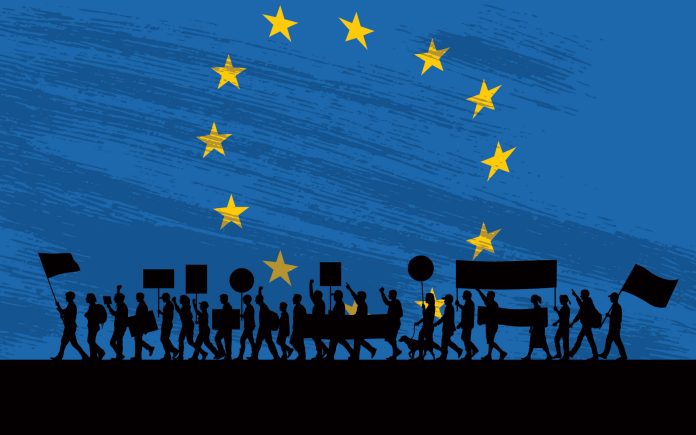The European Union yesterday voted in favour of a landmark pact to control migration, which the bloc’s leaders say will allow them to “regain control” of their borders and crack down on economic immigration, though some showed mixed reactions, according to GB News.
The Migration Pact, consisting of nine interdependent documents, is the result of almost 10 years of debate and negotiation at EU level. It simplifies asylum procedures, strengthens border security and creates a new mechanism of “solidarity” between Member States.
European Parliament President Roberta Metsola said:
History made. We have delivered a robust legislative framework on how to deal with migration and asylum in the EU. It has been more than ten years in the making. But we kept our word. A balance between solidarity and responsibility. This is the European way
German Chancellor Olaf Scholz wrote on social media:
It limits irregular migration and finally relieves the burden on the countries that are particularly badly affected. A historic, indispensable step.
The pact was also met with controversy, with Poland and Hungary opposing the adoption of the law for their own security reasons. Viktor Orbán described the pact as “another nail in the coffin of the European Union.” Futher, he added:
Unity is dead, secure borders are no more. Hungary will never give in to the mass migration frenzy.
But if Hungary was somehow an expected opponent of this kind of decision, Poland is an even more worrying source of opposition to the EU.
Donald Tusk became Poland’s Prime Minister last year, a deeply pro-European leader, and it was widely recognised that his election was a victory for Ursula von der Leyen. But Tusk cautioned yesterday that he would find ways to free Poland from a mechanism that relocates migrants from frontline countries such as Greece and Italy or otherwise obliges them to pay. There has already been grumbling from EU member states about its budget and how much money individual countries have to hand over to the bloc, so when the migrant rejection bill is sent to countries, it is unlikely to go entirely smoothly.
Another issue raised by this legislation is the future of one of the EU’s fundamental principles: free movement. This is grounded in the fact that the New Migration Pact was concluded after more than 11 EU countries had already broken Schengen free movement rules to impose migration controls. For instance, France, Slovakia, Sweden and Germany, reinstated border restrictions including identity checks, passport controls, police interrogations, static checkpoints and vehicle searches.
Such movement restrictions were abolished years ago under the Schengen Treaty, but it is now, according to some countries, that such measures are necessary to stop the “infiltration” of terrorists posing as migrants.
The new pact will probably serve to suppress open dissent to some extent, but such a fundamental shift in EU central policy raises questions about the future existence of the EU as a unified system and the rationale for its existence in the present realities.
